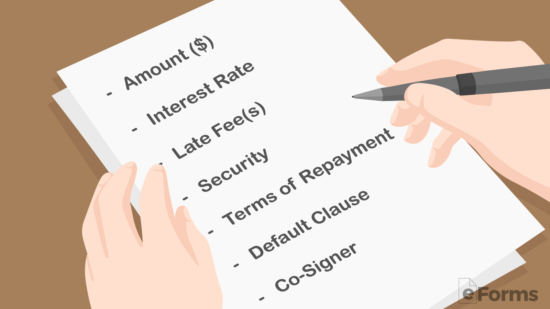Understanding the Basics of Promissory Notes
Whether you are a borrower, lender, or simply curious about the world of finance, this guide will provide you with a comprehensive understanding of promissory notes.3 min read updated on September 08, 2023
Promissory notes are a common financial instrument used in various transactions, such as loans and business agreements. Understanding the basics of promissory notes is essential for anyone involved in these types of transactions. In this blog post, we will explore the key elements of promissory notes, their purpose, and how they work. Whether you are a borrower, lender, or simply curious about the world of finance, this guide will provide you with a comprehensive understanding of promissory notes.
The Purpose of Promissory Notes
Definition and Overview
- A promissory note is a written promise to pay a specific amount of money to a designated party.
- It serves as a legally binding agreement between the borrower and the lender.
- Promissory notes are commonly used in various financial transactions, including loans, mortgages, and business agreements.
Types of Promissory Notes
- Secured promissory notes: These notes are backed by collateral, such as real estate or vehicles, which the lender can seize if the borrower fails to repay the loan.
- Unsecured promissory notes: These notes do not have any collateral attached to them, making them riskier for the lender.
- Demand promissory notes: These notes allow the lender to demand repayment at any time.
- Installment promissory notes: These notes require the borrower to make regular payments over a specified period.
Key Elements of Promissory Notes
Parties Involved
- Borrower: The individual or entity who promises to repay the loan.
- Lender: The individual or entity who provides the loan.
- Payee: The person or entity to whom the borrower makes the payments.
Terms and Conditions
- Principal amount: The initial amount borrowed.
- Interest rate: The percentage charged on the principal amount as compensation for the lender.
- Repayment schedule: The agreed-upon timeline for making payments.
- Maturity date: The date by which the loan must be fully repaid.
Legal Considerations
- Governing law: The jurisdiction under which the promissory note is subject to.
- Default and remedies: The actions that can be taken by the lender in case of non-payment or breach of the agreement.
How Promissory Notes Work
Creation and Execution
- Promissory notes can be created by individuals or with the assistance of legal professionals.
- The note must be signed by both the borrower and the lender to be legally enforceable.
Enforcing the Note
- If the borrower fails to make the required payments, the lender can take legal action to enforce the promissory note.
- This may involve filing a lawsuit, obtaining a judgment, and pursuing collection efforts.
Transferability
- Promissory notes can be transferred to another party through an assignment or endorsement.
- The new holder of the note assumes the rights and obligations of the original lender.
Conclusion
Promissory notes play a crucial role in various financial transactions, providing a legal framework for loans and agreements. By understanding the basics of promissory notes, you can navigate these transactions with confidence and ensure that your rights and obligations are protected. Whether you are a borrower or a lender, this guide has provided you with a comprehensive overview of promissory notes and their key elements.
A promissory note is a legally binding document that outlines the terms and conditions of a loan or debt. It serves as a written promise to repay a specific amount of money within a certain timeframe. Drafting a valid promissory note is crucial to protect the rights and interests of both the lender and the borrower. In this blog post, we will discuss the key elements that should be included in a promissory note and provide a step-by-step guide on how to draft one effectively.

Notes promising "low risk, high yield" investments may lead to a type of fraud, according to the SEC.
https://www.investopedia.com/terms/p/promissorynote.asp
It is important to remember that all promissory notes should be written in accordance with applicable state and federal laws. If you are unsure of the legal requirements in your area, consult a qualified attorney for further guidance. With the right information and legal advice, you can ensure that your promissory note is properly drafted and legally enforceable.